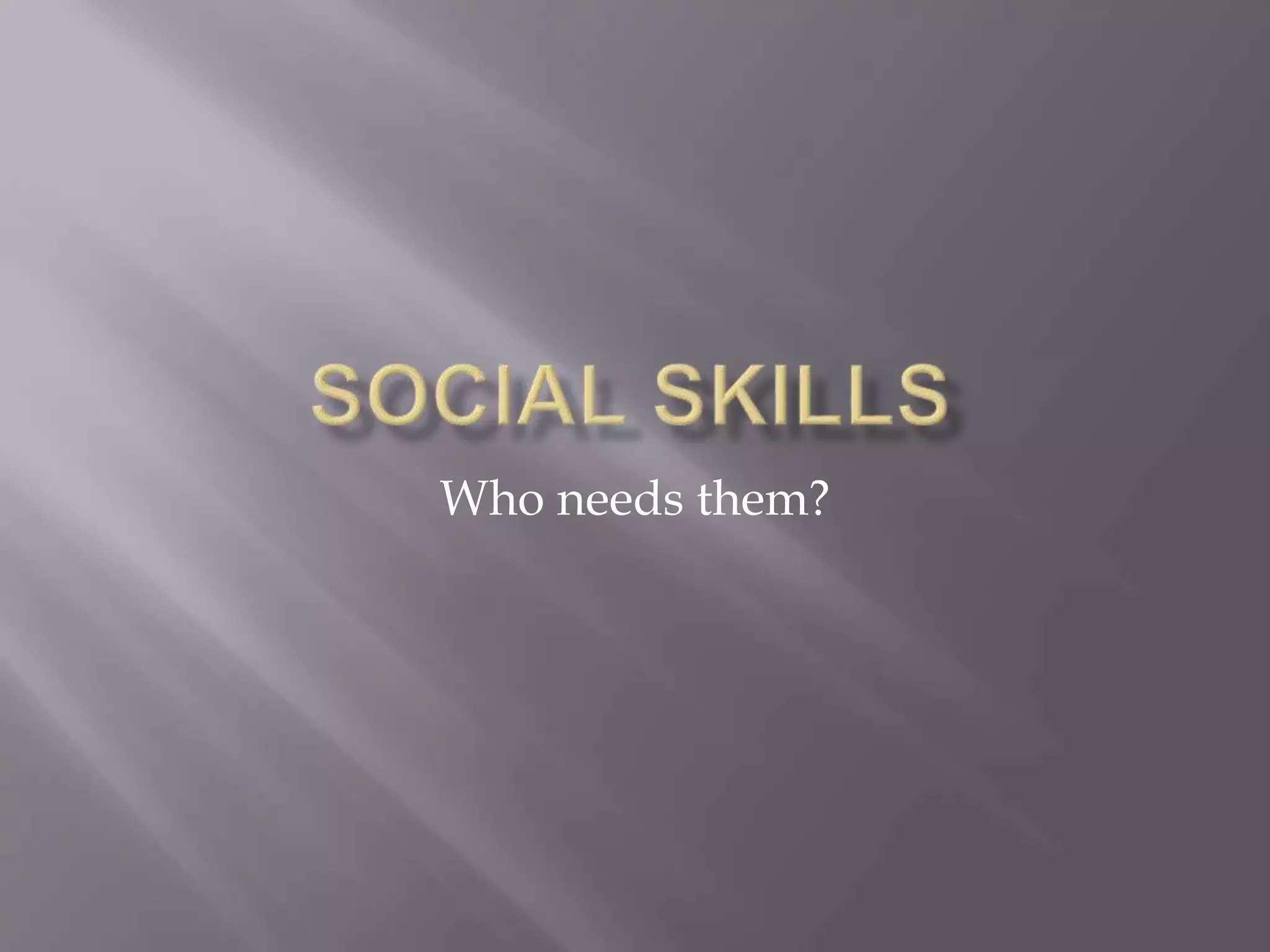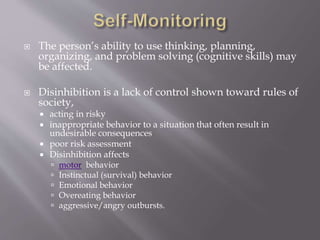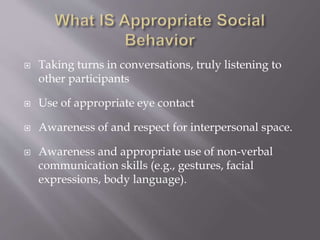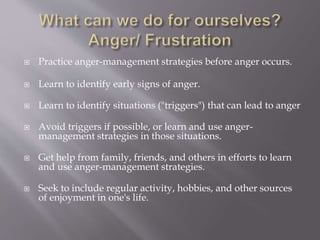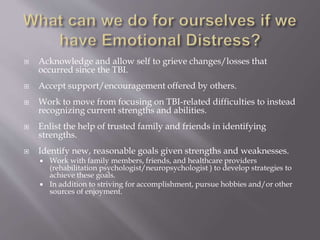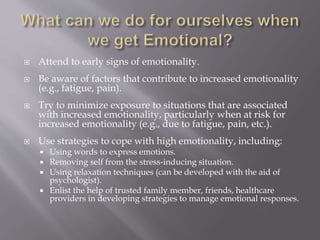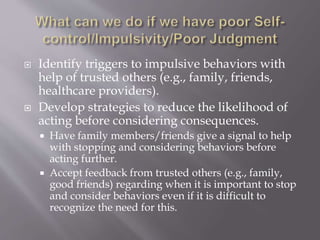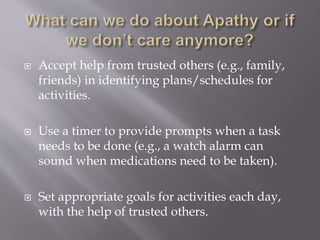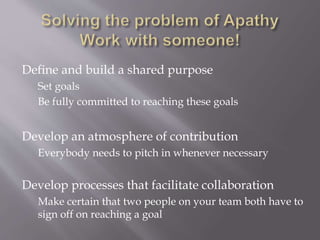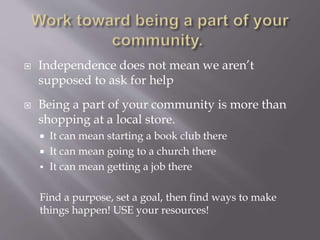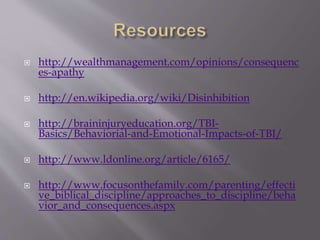The document discusses various cognitive, behavioral, and emotional challenges that may arise from traumatic brain injury (TBI), including issues with problem solving, disinhibition, anger management, emotional regulation, impulse control, and organization/planning. It then provides strategies in each of these areas that individuals with TBI and their support systems can use, such as identifying triggers, using relaxation techniques, setting reasonable goals, and enlisting help from others.
